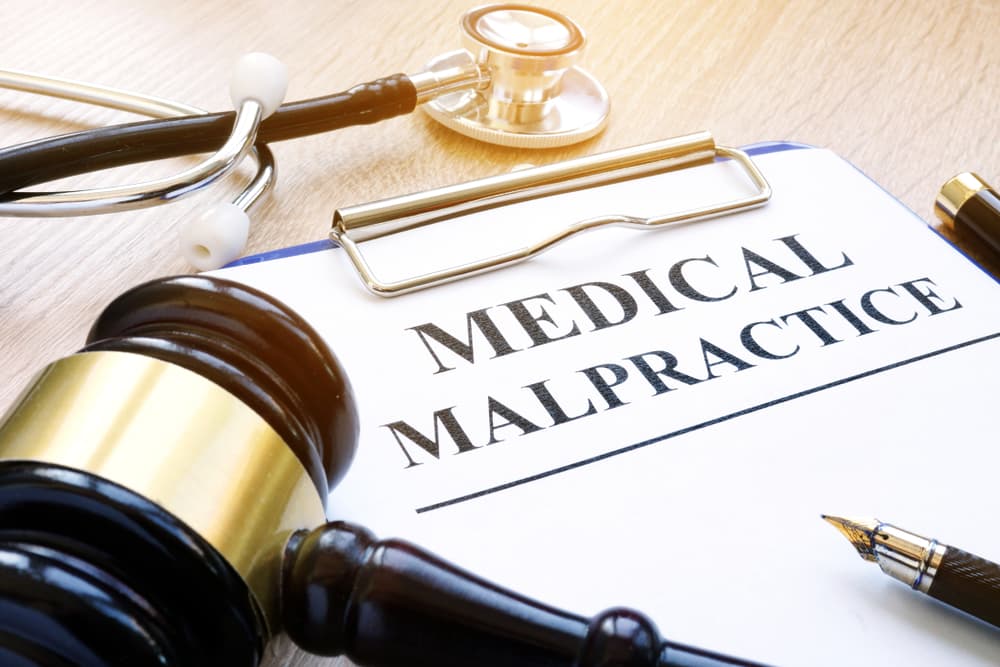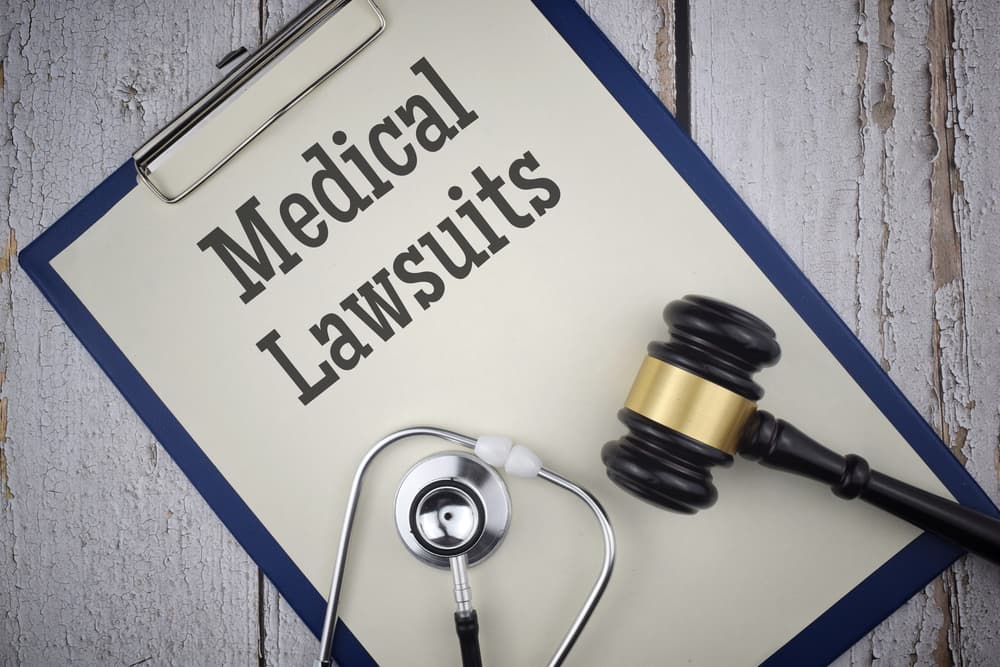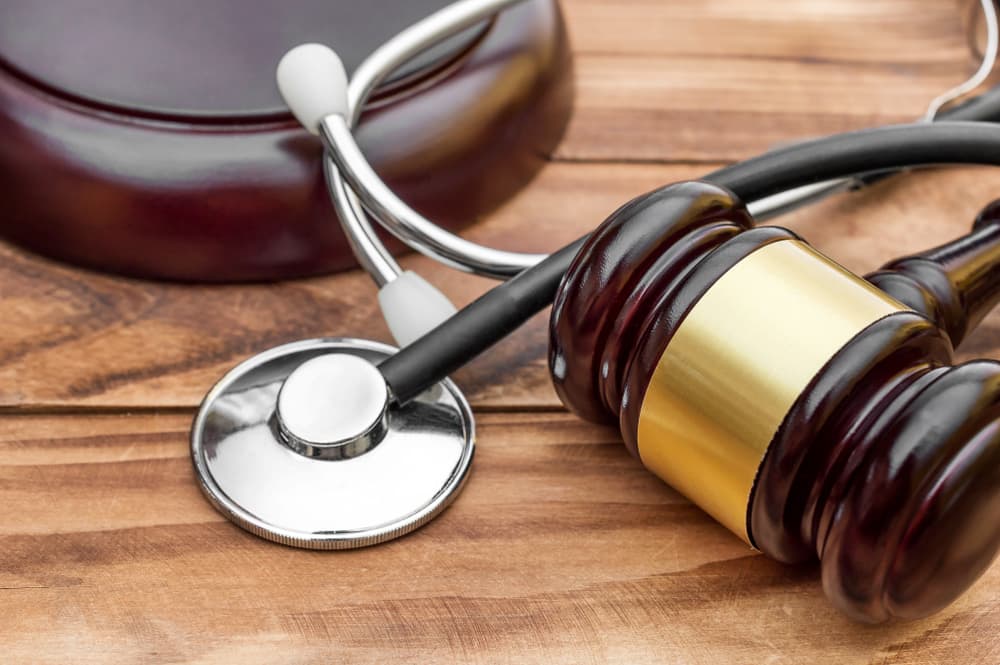If you or a loved one suffered harm due to medical negligence in Virginia, you may be wondering about your legal options. Medical malpractice laws vary by state, so it's important to understand the specific rules that apply in Virginia. A Virginia medical malpractice lawyer can advise you on your rights and the best path forward for your case.
Seeking Justice After Medical Malpractice

When you put your health in the hands of medical professionals, you expect to receive proper care and treatment. Unfortunately, doctors and other healthcare providers sometimes make preventable errors that leave patients with serious injuries. If this happens to you, the physical, emotional, and financial impacts can be devastating.
While no money can undo your harm, Virginia law allows malpractice victims to pursue compensation for damages like medical bills, lost income, pain and suffering, and more. The goal is for you to recover financially and hold the negligent medical provider accountable for their actions. If you believe you have a medical malpractice case, contact a Virginia malpractice lawyer immediately to discuss your situation.
When Can You File a Medical Malpractice Lawsuit in Virginia?
To have a valid medical malpractice claim in Virginia, you must prove that:
- A doctor-patient relationship existed
- The doctor or healthcare provider was negligent and violated the standard of care
- You suffered harm as a direct result of that negligence
"Standard of care" refers to the skill, knowledge, and attention level a reasonably prudent healthcare professional will provide under similar circumstances. It is based on established medical practices and guidelines and ensures that patients receive care that meets generally accepted medical standards. For example, suppose a surgeon leaves a sponge inside a patient during an operation. In that case, this will likely be a breach of the standard of care, as it is a clear error that can cause harm to the patient and is avoidable with proper procedures.
Some common examples of medical negligence include surgical errors, misdiagnosis, failure to diagnose, birth injuries, medication mistakes, and improper treatment. These errors can lead to significant harm, long-term health issues, and even death. A knowledgeable Virginia medical malpractice attorney can review your case, consult with medical professionals, and determine if negligence may have occurred.
What Is the Time Limit for Filing a Medical Malpractice Lawsuit in Virginia?
Virginia's statute of limitations (legal deadline) for most medical malpractice lawsuits is two years from the injury's occurrence. However, if someone left a foreign object inside the body, fraud or concealment occurred, or the victim was under 8 years old, some exceptions may apply to extend the filing deadline.
Because the time limits for medical malpractice lawsuits are very strict, it's wise to speak with a Virginia medical malpractice lawyer as soon as possible if you think you may have a case. Once the statute of limitations expires, you lose your right to file a lawsuit.
How Much Compensation Can You Recover?
Under Virginia law, there are caps on the total amount of compensation a medical malpractice victim can recover. The caps increase slightly each year. The cap for malpractice in the last few years has been $2.60 million. It is set to increase to $2.65 million for malpractice in the next year.
The damages cap applies to all economic damages (objectively verifiable monetary losses like medical expenses and lost earnings) and non-economic damages (subjective losses like pain and suffering). There is no separate cap for punitive damages in medical malpractice cases.
An experienced Virginia medical malpractice attorney can calculate the full extent of your losses and fight for the maximum recovery possible in your case. Even if your damages exceed the cap, securing compensation can provide critical financial relief during a difficult time.
Do You Need a Certificate of Merit to File a Lawsuit?
Yes, Virginia has strict requirements for filing a medical malpractice lawsuit. Before a case can proceed, the plaintiff must obtain a written certification from a qualified medical professional stating that there is a reasonable basis to believe malpractice occurred.
The professional must meet certain qualifications, such as active clinical practice in the same specialty as the defendant or teaching at an accredited medical school. The certification must also describe the applicable standard of care, how the defendant breached it, and how that directly caused the plaintiff's injuries.
A Virginia medical malpractice attorney can locate the right professional for your case and ensure you meet all the requirements for filing a strong claim. Legal representation from the beginning can put you in the best position to seek justice. Their experience can guide you through the complex legal process, gather critical evidence, and consult with medical professionals to strengthen your case. This support significantly increases your chances of securing a fair settlement or a favorable verdict in court. Additionally, having an attorney by your side can relieve the burden of navigating the legal system, allowing you to focus on recovery.
What Happens After a Medical Malpractice Lawsuit Is Filed?

If you've suffered an injury by medical malpractice in Virginia, you may be considering filing a lawsuit to seek compensation for your losses. However, many people aren't sure what to expect once they file a medical malpractice lawsuit. The truth is that these cases are often highly complicated and can take much longer to resolve than other types of personal injury claims.
The legal process will begin in earnest after your Virginia medical malpractice lawyer files a formal complaint with the court. The first significant stage is "discovery," a fact-finding mission for both sides. During discovery, your attorney and the defendant's legal team will exchange relevant information and documents related to your case. This may include your medical records, witness statements, professional opinions, and other evidence supporting your claim.
Your lawyer may also take depositions or formal interviews under oath as part of the discovery process. Depositions allow attorneys to question key witnesses, including the defendant's healthcare provider, about their knowledge of the case. These sessions are typically held in a lawyer's office with a court reporter present to create a written transcript of the testimony.
Consulting with expert witnesses is another aspect of building a strong medical malpractice case. These are typically medical professionals with specialized knowledge and experience in the same field as the defendant. Your Virginia medical malpractice lawyer will work with professionals to review your medical records, determine if someone breached the standard of care, and assess the extent of your injuries and damages.
The discovery process can take several months to a year or more to complete. During this time, your attorney will work diligently to gather all the evidence to support your claim and build a compelling case.
Once discovery is complete, the next step is typically to attempt to resolve the case through settlement negotiations. In many cases, the defendant's insurance company will be more willing to discuss a settlement once they have a clearer picture of the evidence against them. Your Virginia medical malpractice lawyer will negotiate aggressively with the other side, fighting for a settlement that fully and fairly compensates you for your losses.
If the parties cannot reach a settlement, your case may proceed to alternative dispute resolution methods like mediation or arbitration. During mediation, a neutral third-party mediator will work with both sides to find a mutually agreeable resolution to the case. Arbitration resembles a trial but is usually less formal and involves a panel of arbitrators rather than a judge and jury.
If all attempts at settlement are unsuccessful, your case will proceed to trial. Medical malpractice trials often involve testimony from multiple expert witnesses and detailed presentations of medical evidence. As the plaintiff, you bear the burden of proving your case by a "preponderance of the evidence," which means that your version of events is more likely to be true.
At trial, your Virginia medical malpractice lawyer will present a compelling case on your behalf, using all the evidence gathered during discovery to demonstrate how the healthcare provider's negligence caused your injuries. The defendant can present their case and refute your allegations. Ultimately, the judge or jury will decide whether the defendant is liable for medical malpractice and, if so, how much compensation you are entitled to receive.
Even if your case goes to trial, the defendant may still offer a settlement at any point during the proceedings. Many medical malpractice cases are resolved through settlement negotiations even after a trial has begun. Your Virginia medical malpractice lawyer will continue to advocate aggressively for your interests and advise you of your options at every stage of the process.
If you believe you or a loved one has been the victim of medical malpractice in Virginia, don't hesitate to contact a skilled attorney for a free case evaluation. With their help, you can hold the negligent healthcare provider accountable and secure the necessary resources to move forward with your life.
Should You Hire a Lawyer for a Medical Malpractice Case?

If you or a loved one has been the victim of medical malpractice in Virginia, you may wonder if you need to hire a lawyer to handle your claim. After all, taking legal action against a healthcare provider can be overwhelming, and you might feel tempted to resolve the matter alone. However, there are several compelling reasons why working with an experienced Virginia medical malpractice lawyer is in your best interests.
First and foremost, medical malpractice cases are notoriously challenging to prove. These cases involve complicated medical and legal issues. Even if you have a strong case, the healthcare provider and their insurance company will almost certainly try to avoid liability and minimize any potential payout.
An experienced Virginia medical malpractice lawyer will have the skills, resources, and tenacity to level the playing field and fight for the full and fair compensation you deserve. When you hire them, your attorney will begin investigating your case to gather all the evidence to support your claim. This may involve reviewing your medical records, interviewing witnesses, and consulting with medical professionals to establish the standard of care and how the healthcare provider's actions fell short.
Your lawyer will also handle all communication with the insurance company and their attorneys, protecting your rights and advocating for your interests at every stage. This can be especially important during settlement negotiations, as insurance companies are notorious for making lowball offers that do not adequately compensate victims for their losses. A skilled negotiator will carefully evaluate any settlement offer, giving you confidence in the outcome and ensuring that your attorney will fight for the maximum recovery.
If the parties cannot reach a fair settlement, your Virginia medical malpractice lawyer will be fully prepared to take your case to trial and argue your case in front of a judge and jury. This is where having an experienced litigator can make all the difference, as they will know how to present your case in the most compelling way possible and refute any defenses the other side raises.
Perhaps best of all, most Virginia medical malpractice lawyers offer free initial consultations and work on a contingency fee basis. This means that you can discuss your case with an attorney without any upfront costs or obligations, and you will only owe legal fees if and when you recover compensation through a settlement or court award. In other words, contacting a respected Virginia medical malpractice lawyer about your situation means you have nothing to lose and potentially much to gain.
Get the Help You Need From a Virginia Medical Malpractice Lawyer
Dealing with a serious injury and the legal process is overwhelming for any medical malpractice victim. Fortunately, you don't have to go through this difficult time alone. If a medical professional's negligence turns your life upside down, you can demand accountability and justice.
The law sets strict deadlines and requirements for medical malpractice cases in Virginia. The sooner you contact a knowledgeable Virginia medical malpractice lawyer on your side, the better your chances of recovering the compensation you need to get your life back on track. Many attorneys offer free case evaluations, so you have nothing to lose by reaching out for trusted legal guidance today.
